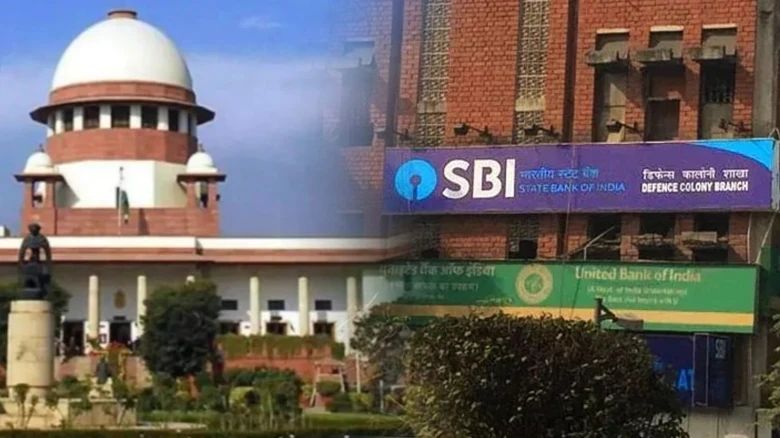The court directed the Election Commission to publish this information on its official website by March 15...
Digital Desk: The State Bank of India (SBI) has made headlines as it complied with the Supreme Court's order to submit the data on Electoral Bonds to the Election Commission of India (ECI). This move comes after the top court's stern directive on Monday, compelling SBI to disclose crucial details regarding the sale and purchase of electoral bonds.
According to sources, the data shared by SBI provides insights into the transactions, revealing information about the purchasers, the amount of bonds bought, and the favored political parties. This disclosure, albeit in a raw form, marks a significant step towards enhancing transparency in political funding.
The Supreme Court, led by Chief Justice DY Chandrachud, firmly rejected SBI's plea for an extension of time and mandated the submission of electoral bond details by the close of business hours on March 12. Additionally, the court directed the Election Commission to publish this information on its official website by March 15.
During the court proceedings, SBI had cited logistical challenges in compiling and disclosing the data, referring to the need for time to gather and cross-verify information stored in separate systems for confidentiality. However, the court emphasized that the process was simpler than portrayed, asserting that SBI only needed to collate and provide the information without matching donor and recipient details.
The introduction of electoral bonds in 2018 aimed to revolutionize political funding by replacing cash donations with a more transparent system.
SBI's issuance of Electoral Bonds, amounting to Rs 16,518 crore over 30 tranches, underscores the scale of this financial mechanism.
Despite its initial intentions, the electoral bond scheme faced scrutiny, culminating in a landmark Supreme Court ruling last month. The court deemed the scheme "unconstitutional," citing violations of citizens' right to information.
In light of these developments, SBI's submission of electoral bond data signifies a pivotal moment in India's electoral finance landscape. It reflects a concerted effort towards upholding transparency and accountability in political funding, aligning with the principles of democratic governance.
As the data becomes publicly available, it is expected to foster greater scrutiny and informed discourse surrounding political financing practices. Ultimately, this transparency is integral to ensuring the integrity and fairness of the electoral process, thereby bolstering the foundations of democracy in India.

Leave A Comment